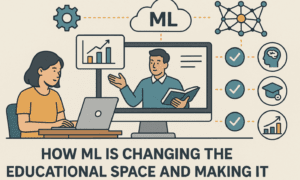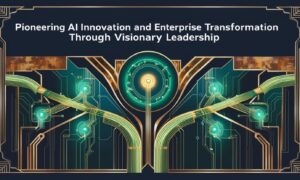Vipin Mathew, Principal Software Engineer: A 17-year veteran in the tech space, Vipin has a track record of optimizing cloud infrastructure, automating deployments and ensuring application resiliency. Vipin has extensive production experience on Python, Java, and cloud-native technologies and has driven projects that enhance performance and cut down costs. Today, we talk to him about technology changes he has experienced, the need for cost optimization, and how machine learning plays a part in capacity planning.
Q: You have been in the tech industry for an astonishing 17 years — what do you think are the biggest changes you’ve seen that will define the industry?
A: The biggest shift that I have seen has been cloud computing going mainstream. When I began my career, physical data centers were the go-to for businesses; cloud platforms have since completely transformed this for organizations. Cloud-native technologies brought scalable computing solutions, reducing costs and making computing more efficient, leading organizations to lean and agile operations.
Q: You have a large background in resilient cloud application development and proactive monitoring. How important are these skills in today’s tech environment?
A: These skills are so important now more than ever. Cloud environments are complicated, and uptime is critical. A well-designed cloud application provides stability, while proactive monitoring is able to identify problems before they become big issues. Cloud application resiliency allows for consistent user experiences and reduces potential downtime and loss of revenue.
Q: Automation, infrastructure-as-code and continuous performance improvements, appear to be your key areas of expertise. How have they influenced the way you work?
A: Automation has been a game changer. Automation makes our lives easier by removing manual, repetitive tasks, thereby increasing efficiency and reducing human error. Infrastructure-as-code enables teams to provision and manage cloud resources in a consistent, replicable manner, which leads to speed and reliability (i.e. the two clouds are like high-availability for our infrastructure all new features can be rolled out to both together increases the speed and reliability of the deploy model. Performance improvement on a regular basis ensures we are ahead on scaling needs and cost limitations.
Q: What role does cost optimization factor into your business dealings?
A: Cost optimization is critical in any area of managing the infrastructure. My job is plotting those cloud costs and figuring out how to reduce costs without sacrificing performance. By optimizing and reducing instances of hardware allocation, improving CI/CD pipelines, implementing strategic scaling policies, for instance, we were able to save companies I’ve worked with considerable amounts.
Q: How does capacity planning help in optimizing cost?
A: Capacity planning is key to making sure resources are neither underused nor over-supplied. Forecasting future demands accurately enables businesses to distribute the required quantity of infrastructure; thus, they reduce wastage and overextending.
Q: Can you tell us some of the challenges you had to overcome while implementing cost optimization strategies?
A: Some key challenges are breaking the existing processes and changing the mentality on how things are done. A lot of organizations are used to traditional budgeting models, and box models, and changing their mentality to invest in long-term value as opposed to immediate short-term savings is often hard. Cost optimization also requires specialized skills that not every team has.
Q: What has been the role of machine learning in capacity planning and cost optimization?
A: Machine learning for demand forecasting and operational efficiency has changed the game in these areas. Collecting historical data enables ML models to achieve high accuracy in predicting the need for future resources, allowing businesses to dynamically optimize their infrastructure. This has resulted in more informed decisions and significant costs savings.
Conclusion
The insights by Vipin Mathew give symptomatology and a roadmap to drive business efficiency leveraging technology. Specializing in cloud computing, cost optimization, and machine learning, he excels at helping organizations scale effectively without sacrificing quality.





























